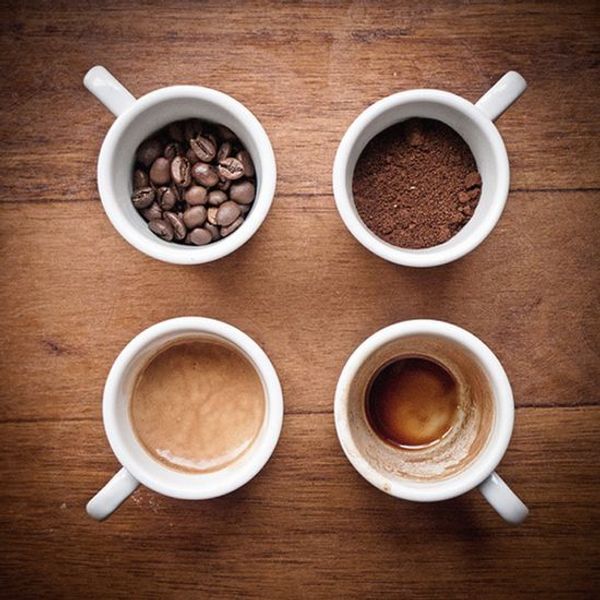Coffee & Neuroscience - What I've learned about learning
Having a cup of coffee will never be the same to me!
Around one year ago a sequence of personal events made me move to Parma, in the center of Italy. Since I had studied Italian arts and culture at University and considering that when I was in Milan I used to work in tourism, my primary instinct has been to go all around discovering this beautiful city and all its ancient and also recent secrets. This is how I found myself into a topic that shed new light on my approach to work in language learning and teaching.
Around 1967, Giacomo Rizzolatti (Kiev, 1937) - for his own sequence of personal events - arrived in this very city. He had attended med school in Padova and he had worked at Pisa University; he was a physiologist researcher back then. Here in Parma he started as an assistant and soon became tenured Professor at Parma University, where he devoted his life to Neurophysiology and Neuroscience. He tested on cats and monkies in natural environements for decades and finally his studies on behavior and properties of specific brain neurons called Mirror Neurons were published on "Experimental Brain Research" periodical in 1992, and they were destined to change the face of this and many more fields of science research. Since then, thanks to brain imaging technologies as TMS, PET, EEG and fMRI, international research confirmed the presence of such Neurons also in human brain.
Far from going into the details of a science out of my expertise, we're talking about brain neurons that activate when we observe someone else's action, just the same way they activate when we execute that very same action ourselves.
Imagine you want to drink a cup of coffee
When we watch a delicious piping hot espresso coffee - you will excuse my italianness on that ;-) - on the table in front of us, our brain activates a series of neuronal processes in order to observe, evaluate and then act.
In technical terms:
- perception (visual, olfactory, thermal...)
- recognition (shape, position, materials...)
- finalized action (reaching the hand out --> grabbing the cup --> bringing it to mouth and finally --> drink the so long desired espresso coffee!)
The very same series of neuronal connections dealing with many different brain areas, also happens when we observe another person reaching out and grabbing a cup in order to drink coffee. That's the reason why they're called Mirror Neurons: they act like in mirror reflection.
It has even been demonstrated that in human brain they don't only activate when action happens in front of us, but also when the intention of the action is showed or gesture is mimed - even without the coffee cup itself!
In other words, it's our motor system that allows us to understand someone else's actions and - we should actually say empathically - let us feel that action as we ourselves were acting that way. This empathic communication mechanism is also at the basis of our learning process since birth (and even before), thanks to a sort of innate motor vocabulary, which time, experience and consequently practice do perfect.
This topic surpassingly fashinated me!
So, if you would like to have a cup of coffee (the way you prefer it!) and keep reading, here are few personal considerations that readings on Mirror Neuron System inspired me about my role as a second language teacher and about learners I work with.
1. Vocabulary is fundamental, but yet it's not enough
If I want to drink coffee but I have no coffee beans nor powder, I won't even smell coffee! For the same reason, if I want to speak a new language but I don't own any vocabulary, I will never communicate verbally. We all agree on that! But that's not enough. Even if I own the best powdered coffee but I'm not able to use a coffee machine (like traditional Italian moka ;D), maybe I'll be lucky to smell quality coffee powder, but still I'll never be tasting a good cup of it!
From Mirror Neurons behavior we can observe that they do not analyze single movements (e.g. they do not activate for the "to reach the hand out" movement), but rather sequence of actions (which is to say "to reach the hand out to grab the cup of coffee" movement). Likewise when I learn a new language I can't base my learning exclusively on single linguistic elements such as a huge amount of vocabulary, nouns or verbs; instead I need to learn how to link them each other in linguistic actions such as to greet, give instructions, ask questions, make requests, tell a story, describe a process, share opinions and so on...

2. I learn what I need
From Mirror Neurons experiments has been evident that not only there are neurons that react to a sequence of actions, e.g. when I observe someone reaching out and grabbing a cup of coffee, but also there are neurons that react to the meaning of that actions, which is whether drinking that cup of coffee is relevant to me or not. Actions like taking, pushing, crushing, holding, are aimed actions.
Therein human brain is so pragmatic: neurons do activate mostly when the action I observe is considered relevant to me. In other terms if I know that in my cup I won't find anything drinkable, but coffee beans instead, I'll never have any kind of interest in activating my neurons in order to grab that cup. Similarly in my learning process I do learn linguistic actions, but in the first place starting from what I really need; later, when it's clearly useful to achieve a communication goal of mine, I perfect my knowledge; and as a result, I leave the rest aside. Asking myself "what do I need?" every step of my learning experience is then necessary to optimize my sources and avoid what's wasteful.

3. I learn when I'm not aware of learning
Though Mirror Neurons activation is selective and aimed, there's a spontaneous and continuous neuronal activity in our brain, reacting to different stimulations even when we are not aware of them. We ground most of our learning also on this unconscious activity.
That's why it's so important for learners to be constantly - or at least as much as possibile - exposed to language, possibly in relaxed and fun environments. If I daily enter a café and smell good coffee, watch cups coming and going along the bar and stare satisfied expressions of people who has just drunk it, more or less consciously my brain will receive messages. Those same messages - if positive and useful as we said - I'll look for when my Mirror Neurons will be activated by observing the hand reaching the coffee cup on the table. Which is to say that if I am largely exposed to a target language, it will be easier for my brain to desire to practice it.

4. The more I do, the more I'll understand
Mirror Neurons researches made clear that in order to understand someone else's actions I need to have a motor knowledge of those actions within me. Observing someone grabbing the cup of coffee and having my neurons figure themserves grabbing it, is possibile because in my motor system is already present the ability to act like this. As deep my motor ability is, as many neurons I'll activate and better I'll understand the other's action. That means that when I learn a new language, the more I practice, the more I'll be able to comprehend and not only what others do but at the same time what I do in response. Reaching that cup of coffee at this point actually is based on training, just like speaking, writing, reading and listening are exercises to be practiced constantly in order to have full control and awareness of our understanding and learning process.

5. My working memory is constantly on expiration date
When we learn by imitation we pass through two different phases:
- after we had observed an action, we split that action in single elements that we already know from inner motor vocabulary and put them in the so called working memory;
- at this point we imitate by putting those elements back together in the very same sequence of the action we had previously observed.
We do exactly the same when we repeat a sound, a word, a sentence or even a dialogue from our target language. This is an endless process, and what's interesting is that we learn as much as we are willing to recreate every time not only what we have received but also new sequences of meaningful elements. In linguistics this is called interlanguage; it's the developing communication of every learner and it needs patient and constant refinement as well as a personal touch. While learning, a language is never perfect, is always in movement, and our working memory should never stop processing. That's why "keep learning" is one of my favourite encouragements.

6. I do empathize, and so I learn
One of the most interesting Mirror Neurons research applications is without any doubt the physiological explanation of empathy as the possibility to understand others' actions, gestures and even emotions as our own. In my opinion this can truly make the difference in language teaching and learning to define whether we will succeed or not.
From this perspective a learner can trust that everything he or she is going to face is already set in the inside of his or her mind and can be found inside the other's - may this other be a native speaker or even a teacher. Consequently everything can peacefully be understood, translated and put into action. Realizing that inside another person is the potential of learning by imitation implies letting someone help us during the learning process and this only requires trusting that person.
Finding a trusting teacher, in conclusion, is nothing but sitting together at a table with two cups of coffee on it: you can observe the other person reaching the hand out, grabbing one cup, wish to do the same and be sure that you both will taste really good coffee! When we empathize this way, we can be sure that this is going to be a great learning success.
So enjoy it: not only the coffee, but also the learning!

16 de Maio de 2018





